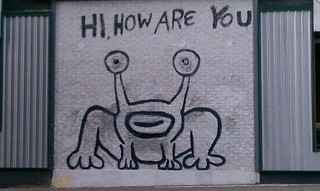
Conference season, or at least the part of it that appeals to my area of librarianship, is starting soon.
Up first for me is Computers in Libraries in DC, where I won’t be attending, but instead vacationing nearby (since it is so close) and visiting with colleagues and friends who will be attending. I’d go, but I already have funding this year for three conferences, and it didn’t seem fair to ask for another.
Next, I fly to Austin for the Electronic Resources & Libraries conference. From the venue to the content, this is becoming my favorite conference. I’ve had to actively introduce more diversity to the sessions I choose to attend, otherwise I would spend the whole conference geeking out about use data and spreadsheets and such.
Finally, I head to Buffalo for the conference that shaped me into the librarian I became: NASIG (North American Serials Interest Group). I like this one because I’ve known many of the attendees for the entirety of my relatively short career, and because it works very hard to not be just a librarian conference, but rather an industry-wide discussion of all things serial in libraryland.
It was in the context of thinking about these upcoming conferences that I read the latest Prof Hacker blog post from The Chronicle of Higher Education. Ryan Cordell writes about his experiences with conference tweeting and the recent revelations he has had regarding the impact this can have on the presenters, whether they are active participants on Twitter or not. Many things he wrote resonated with me, and reminded me that Twitter — as well as other popular social media platforms — is no longer the private back-channel of a few techie friends, but is a global platform that can have a broader impact than any of us may know.
I suggest reading the whole article, but I would like to quote here the Principles of Conference Tweeting that Cordell offers, as something for us all to keep in mind:
- I will post praise generously, sharing what I find interesting about presentations.
- Likewise, I will share pertinent links to people and projects, in order to bring attention to my colleagues’ work.
- When posting questions or critiques, I will include the panelist’s username (an @ mention) whenever possible.
- If the panelist does not have a username—or if I cannot find it—I will do my best to alert them when I post questions or critiques, rather than leaving them to discover those engagements independently.
- I will not post questions to Twitter that I would not ask in the panel Q&A.
- I will not use a tone on Twitter that I would not use when speaking to the scholar in person.
- I will avoid “crosstalk”—joking exchanges only tangentially related to the talk—unless the presenter is explicitly involved in the chatter.
- I will refuse to post or engage with posts that comment on the presenter’s person, rather than the presenter’s ideas.



